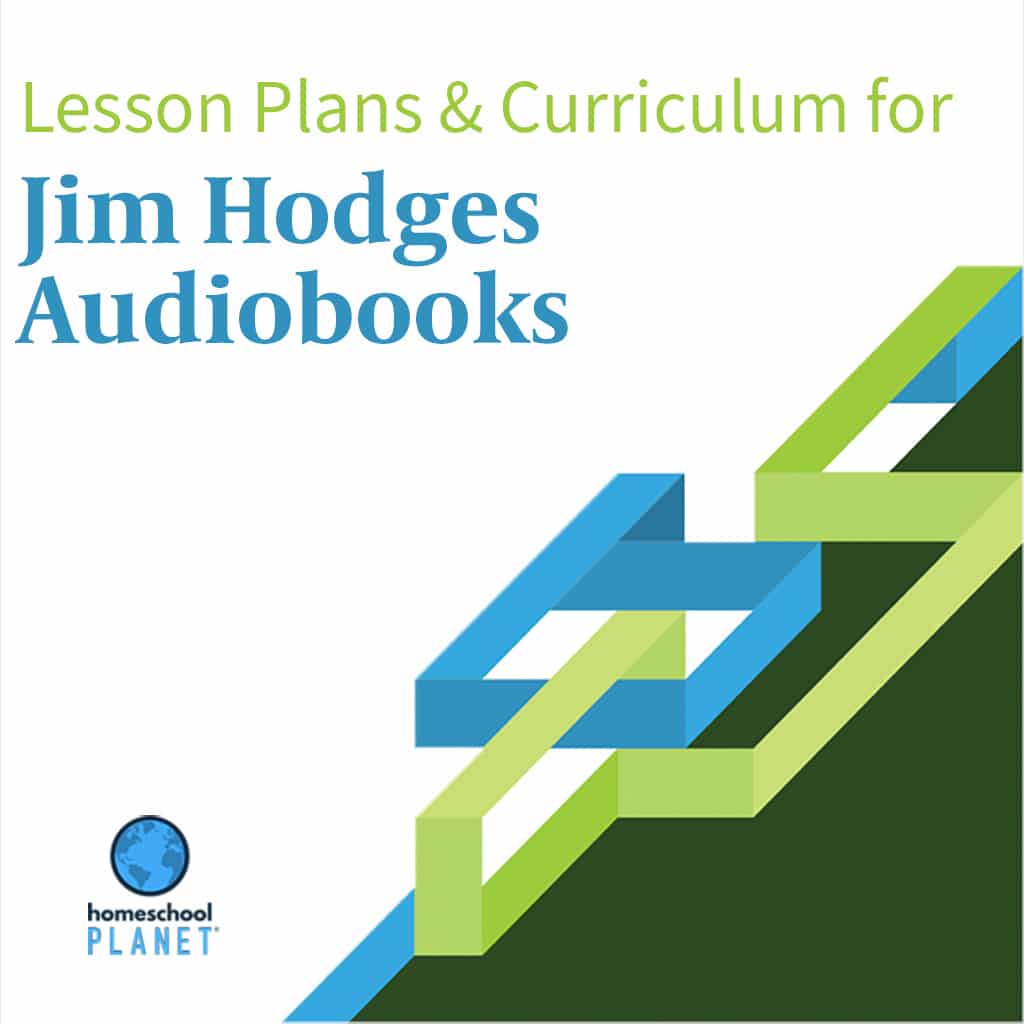Top 10 Benefits of Listening to Audiobooks
This is Jim Hodges, and I’ve been recording books for 23 years now. My original desire to record books was selfish actually. I loved reading out loud and thought that recording books would be a fantastic at-home business to start after I completed my 20 year career in the U. S. Navy. While I knew that listening to audiobooks could be fun, what I didn’t know is that listening to an audiobook has lots of other benefits to the listener. Here are the top 10:

#1 Benefit: Audiobooks Improve Time Management.
One of the greatest benefits of audiobooks is that you and your kids can save a lot of time by multitasking – provided the other tasks do not require too much of your attention of course! You can listen to them while driving to soccer, piano lessons, church, nap time, bed time, or while being together as a family in the evening. Other times people love listening to audiobooks is in the gym, or while going for a walk, or while carrying out their daily routines like cooking or cleaning.
The best routine I’ve heard is from a homeschooling mom in South Carolina: Every day, while making and eating lunch, Mom puts on the next chapter of a Henty audiobook. Everybody gets to listen to a chapter while making and eating their lunch. Chapters are typically 30-40 minutes long so that works about right. After the chapter is over Mom gets to ask questions about the chapter. That makes sure everyone is following the story. She can also define new vocabulary words, clarify relationships between characters, or show on a map where the action took place. Once the book is completed and everyone’s had a chance to listen together as a family, they have a drawing to see who gets to listen to it alone first, and then everyone takes turns listening on their own devices when it works for them.
In this example, everyone hears the story. Mom gets to ensure they all followed and understood it. She also ensures that the moral lessons exemplified are clearly understood and emphasized, that there is a connection made between good morals and good outcomes.
# 2 Benefit: Audiobooks Improve Pronunciation and Fluency.
While the narrator reads, you will notice and learn, quite passively and accidentally, the way he is pronouncing different words. Not only that, but you will notice his reading speed, his pauses, stresses, and intonations, which are very crucial in having fluency and command over any language. What you may not know is that I spend nearly a month preparing a book for recording before I ever turn on a microphone.
While reading the book quietly to myself I’m underling words I’m not sure how to pronounce. Specifically I’m looking at the names of rivers and mountains and cities and actual people from history. I own a regular dictionary, a geographic dictionary, and a biographic dictionary which I use to look up unusual words, places, and people. It’s been a huge help to me. There are also sites on the internet where you can ask “how to pronounce _____.” If your children follow along in the text of one of my recordings, they will see that words often aren’t pronounced the way you’d think based on their spelling! Think Versailles. It’s pronounced ver-SI. Who’d have thought that? Nobody, unless they were French.
# 3 Benefit: Audiobooks Are Wonderful for Struggling Readers.
There seems to be an increase in the number of people diagnosed with reading difficulties. Maybe, just maybe, it’s really that we are just better at identifying their issues. It is now widely believed that Thomas Edison, Nicolas Tesla, Leonardo Da Vinci, Alexander Graham Bell, and Jules Verne were all dyslexic. There was no diagnoses of course, but all the evidence appears to be there. Do you think they would have loved audiobooks? I’ll bet they would have! Consider the benefits that would accrue if you included audiobooks into your struggling reader’s day.
# 4 Benefit: You Get an Interesting and Lively Experience of the Story.
The personality of the narrator can really enhance the flow and feel of a story! My goal when I record a book is to translate the written word into mental pictures for you – of people and places and situations, and also help you to understand the plot better. When you are watching a movie, everything is done for you. Facial expressions, tone of voice, actual appearance of a character, seeing where the story takes place – no imagination required! On the other hand, when listening to an audiobook, it’s almost entirely up to the reader to take the words of the author, and help you visualize all that in your head. Of course the authors descriptions form the foundation of the story, and many authors are quite descriptive, which is really helpful, not only to the listener, but to the reader. If it weren’t for the author’s description, how would I know anything about the character? How am I supposed to translate that into their voice, their attitude, their story?
The narrator’s job is to get into the author’s head – to take the words of the author and accurately present the story and bring the personality of each character to life. I do this with character voices of course, but also by varying my inflections, emphases, pauses, accents, and cadences. SO much of a story can be told with those elements, in addition to the actual words spoken. When a narrator uses all of the tools available to him, it really does transform the words of the author into an interesting, lively, and fun experience for the listeners!
# 5 Benefit: Audiobooks Build “Critical Listening” Skills.
Not surprisingly, listening to audiobooks assists in the development of listening skills! In life, it’s vitally important to be able to really listen when people speak. Whether it’s a teacher, pastor, parent, employer, friend, or spouse, truly listening is one of the most important skills you can develop. First and foremost, you want to ensure that you completely understand what is expected of you, what an authority has required of you, or what your friend or spouse is feeling. If you haven’t developed the critical skill of listening, how are you going to know if you got the information right? Anyone can just listen to a story or a book. However, the purpose for listening, or reading for that matter, is not just to be a recipient of information – that’s great for younger listeners for sure and what many people refer to as “pleasure reading” or “pleasure listening.” But eventually, we all need to develop the skill of analyzing the logic of the information being transmitted, determining if the author has “made the case” so to speak, and judging the accuracy and legitimacy of the information being shared.
#6 Benefit: Audiobooks Can Improve Focus and Attention Span.
I am not, by nature, an auditory learner. When people ask me what audiobooks I listen to, as kindly as I can I tell them I much prefer to read books than listen to them. That’s why I record them! I actually have to MAKE myself pay attention to an audiobook. Which actually kind of makes the point! While listening to an audiobook, you NEED to pay attention to what the narrator is trying to convey to you. And you will have to MAINTAIN that attention throughout the narration. With practice, listening to audiobooks can improve your focus and attention span.
# 7 Benefit: Listening to Audiobooks Can Help Improve Memory.
While listening to an audiobook, there are a lot of things that you need to remember! Not the least of which are all of the characters names, their personalities, their histories, and their relationships to other characters. (As I’m preparing a book to record, I actually write down inside the front cover of the book all of the characters names with a brief description of who they are for easy reference. It helps me keep everyone in place till I become more familiar with them as I get to “know” them.) Often there are plots and sub-plots you need to keep straight. You’ll need to remember important conversations too. That’s a lot of stuff to remember! If you are able to stay focused and pay attention you’ll be better at remembering all these things. Naturally your ability to remember all of this will improve as you listen to more books. Practice makes perfect, but it is a skill which can be developed. If the skill of remembering all of that disparate information is improved by listening to audiobooks, don’t you think it will translate into a general ability to remembering other things in life? Sounds reasonable to me.
# 8 Benefit: Listening to Audiobooks Builds Critical Thinking and Comprehension Skills.
While listening to an audiobook, or while reading for that matter, a lot of information needs to be processed in your brain simultaneously. You’ve got to keep the characters straight, the geography pictured, the relationships understood. It also requires you to keep your brain open for many different possibilities. You never know how things are going to work out! That’s why you’re listening – to find out what happens! That figuring out is quite a workout for your brain! And that’s a good thing. It stretches you intellectually, spatially, logically. All these mental machinations sharpen your mind, enhance your critical and analytical thinking, and build your comprehension skills.
# 9 Benefit: Audiobooks Help Listeners Develop Empathy.
When the author writes emotional lines, and the narrator reads them effectively, the listener is invited into the emotions being experienced by the character. If someone dies, or a battle is being waged, or an escape is taking place, the reader helps the listener experience the story in a very engaging way, allowing the listener to feel what the character is feeling and experiencing in a very
personal way. I so clearly remember reading the lines of the protagonist in the Henty novel, “In the Reign of Terror.” He was experiencing extreme stress due to the danger he was facing and the responsibility he felt for the young ladies he was trying to spirit out of the country. I actually teared up reading his lines. The emotions were that strong. And as a listener, you can experience those emotions too – and have empathy for the character.
# 10 Benefit of Listening to Audiobooks: Audiobooks Can Boost Your Mental Health.
Provided you are listening to good and wholesome books, listening to audiobooks can help calm your mind by providing a respite from an otherwise fractured, angry, evil world. Feel free to come to https://jimhodgesaudiobooks.com/free-audio-book/ and sign up to receive a free unabridged recording of G. A. Henty’s exciting, historically accurate adventure novel “Under Drake’s Flag – A Tale of the Circumnavigation of the Globe” recorded by me, Jim Hodges!
Jim Hodges’ Audiobooks with Study Guide are available in the Homeschool Planet Marketplace!
Add the time-tested audio stories from master storyteller Jim Hodges into your homeschool day with these comprehensive, value-priced lesson plans for Homeschool Planet. Jim Hodges brings the well-loved historical novels by G.A. Henty to life with his expressive and engaging audiobooks. These stories are noted for being educational, entertaining, and edifying to young and old alike. Each lesson plan includes the entire audiobook, scheduled at a pace of one chapter per day, plus the entire study guide embedded with vocabulary and study questions for each chapter. Comprehension quizzes appear after approximately every five chapters. Let your students listen and enjoy these stories which will help them enter the world of times past.
>> CLICK HERE to learn more! <<


